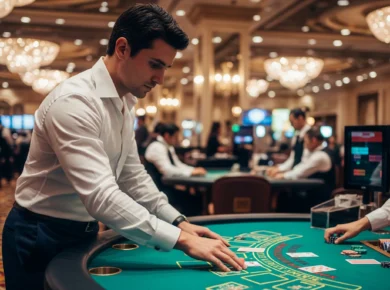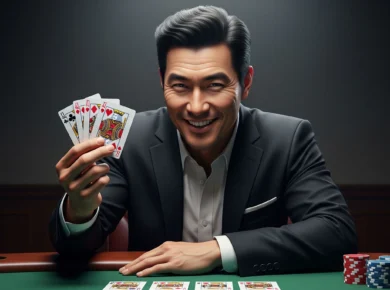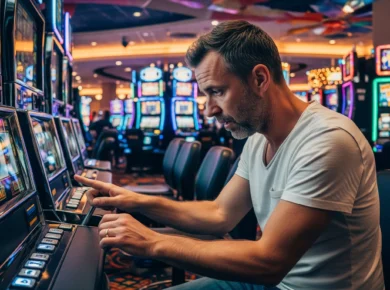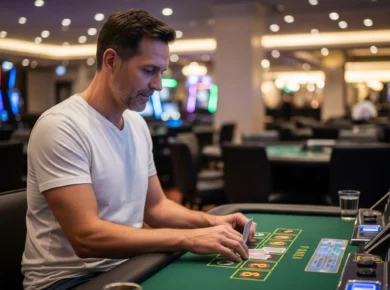In Asian casinos, especially in hotbeds like Macau, Manila, and Singapore, attracting high-rollers isn’t about luck — it’s a calculated science. We’re not talking about the casual punter trying their hand at baccarat. No, we’re talking about whales — the kind who won't blink at dropping six figures on a single bet. These players demand more than your average comped buffet. They’re looking for full-throttle, red-carpet, tailor-made experiences. And that’s precisely where VIP programs step in, with silk-gloved finesse and razor-sharp strategy.
The anatomy of a high-roller
Newcomers often lump high-rollers into a single group, but there's more nuance here than meets the eye. You’ve got the estate tycoons from Hong Kong, the crypto-rich elite from Southeast Asia, and the oil-backed gamblers from the Middle East, each with their own quirks and preferences. Asian VIP programs, to be effective, need to treat high-rollers less like customers and more like royalty. It’s not just about free suites or private jets. It’s about nuanced care down to the brand of cognac, the feng shui of the private room, or even preferred betting limits and styles. Some insist on traditional no-commission baccarat tables; others demand tailored odds and personal pit bosses. And yes, I’ve seen programs botch it by offering a generic package. That’s a fast way to lose a multimillion-dollar client to a rival casino. For more insights on regional adaptations, check out region-specific VIP program strategies.
The architecture of a VIP program
Strong VIP frameworks in Asia are structured on a foundation of exclusivity, discretion, and bespoke benefits. There are five pillars that these programmes tend to stand on: tiered loyalty systems, high-stakes credit lines, personal hosts, luxury travel services, and back-end rebates. Having worked closely with operators rolling out these plans, I can tell you that the cornerstone is often a region-specific adaptation. Vietnamese high-rollers, for example, are drawn to understated luxury and stable transaction logistics, while Chinese whales are more interested in face — the outward expression of prestige and respect. In that vein, invitations to inside events, custom chip designs, and even interactions with casino executives become integral to the experience.
Inside access and the psychology of exclusivity
Many outsiders underestimate how critical status games are in these circles. Think of it this way — when you've already got money, what’s left to chase? Recognition. At one point, I watched a Malaysian businessman shift his base of play from Marina Bay Sands to Macau’s City of Dreams. Why? He wasn’t offered the same suite level as a rival. These aren’t logical decisions — they’re emotional ones. Smart casinos play into this by having exclusive VIP halls, high-limit tables segregated by opaque glass walls, and backroom dice games hosted by senior execs themselves. Players aren’t just gambling — they’re performing. The whole experience is theatrical. That’s why strong VIP programs incorporate status markers like tier badges, personalised gifts, and invitation-only events. It’s what separates a good program from a gold standard one.
Rebate systems and credit underwriting
Now here’s where the gears really turn. Many assume the comp system is the same worldwide, but Asian casinos take things a step further. The real seduction lies in rolling chip programs — a far cry from Western-style comps. These chips, often separate from your regular stack, are used solely for wagering and earn rebates based on volume, not outcomes. Let’s say a VIP cycles through HKD 20 million per week — even if they break even, the casino’s rebate model ensures profitability. Plus, whales are often extended lines of credit without the bureaucratic fuss you'd find elsewhere. Of course, these are underwritten against property assets or verified business interests. In Vietnam, many casinos partner with reliable offshore operators to handle these credit assessments quickly, which allows the VIP cycle to keep moving without friction — a critical factor in maintaining momentum.
The role of junket partnerships
You’re not really in the game until you’ve understood the economy of junkets. These agents act as high-stakes matchmakers — bringing vast networks of VIPs in return for revenue shares. It’s a delicate balance, and regulatory scrutiny across Asia has tightened lately, particularly in China. Casinos are now far more cautious, preferring licensed, transparent operators. Yet, when managed correctly, junkets can serve as the lifeblood of a casino's upper tier. I’ve seen operators bring in $50 million monthly turnover on the back of three junkets alone. The key is control. The house must maintain strict oversight of chip conversion, player tracking, and betting metrics. Otherwise, the whole operation runs blindfolded. It’s also vital to monitor junket agent conduct — because the casino’s reputation is only as good as the people representing it overseas.
Regulatory influences and compliance
Gone are the wild-west days. These days, Asian regulators are anything but hands-off. From Singapore’s Casino Regulatory Authority to PAGCOR in the Philippines, there's a growing emphasis on audited VIP operations. If you think you can run a backroom family-and-favours VIP plan, think again. Operators must now document loyalty program metrics, report suspicious transactions, and enforce loss limits for client protection. It’s a seismic shift driven by finance laws and anti-money laundering requirements. That’s why many casinos now integrate software that logs play volume, chip velocity, and rebate qualifications automatically. And let’s not ignore the adaptation to online VIP programs. Especially with the rise of digital casinos, some operators now replicate top-tier rewards virtually — high-stakes tables, faster withdrawals, and even crypto-friendly incentives.
Final thoughts — the art of long play
Attracting big players isn’t just about flashing Rolexes or wine lists. It’s a long game — a careful orchestration of every touchpoint the player comes across. From the dealer’s greeting to the feel of the chip stack, every moment communicates status, safety, and significance. Lose the thread in any one area, and a competitor will happily swoop in, red carpet in tow. The best VIP programs aren’t just well-funded — they’re deeply intuitive. They read the player before the player places their first bet. And unlike most fools chasing volume, these programs chase relationships. When done right, attracting a high-roller isn’t gambling at all. It’s precision engineering.



































